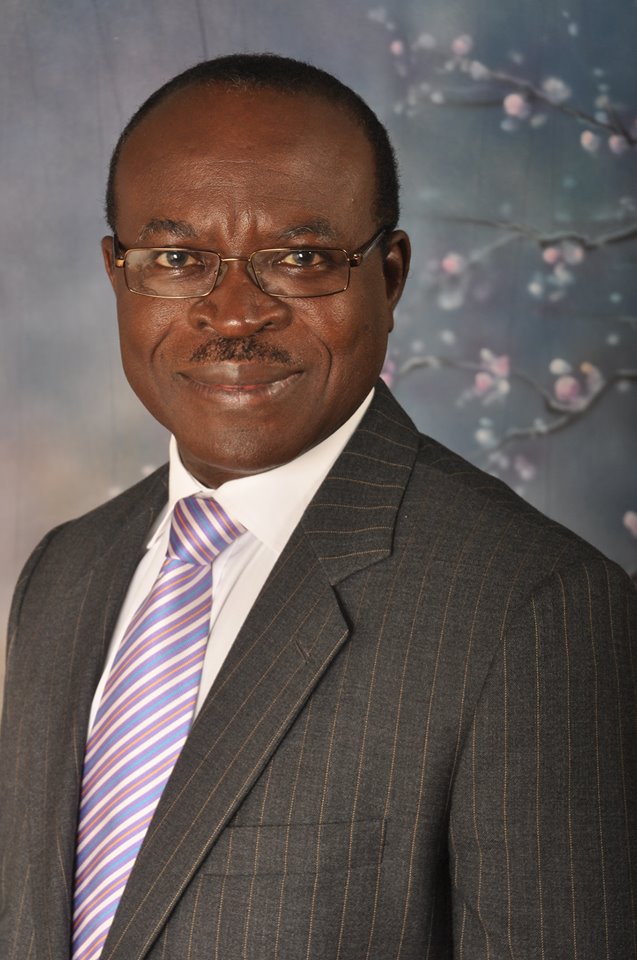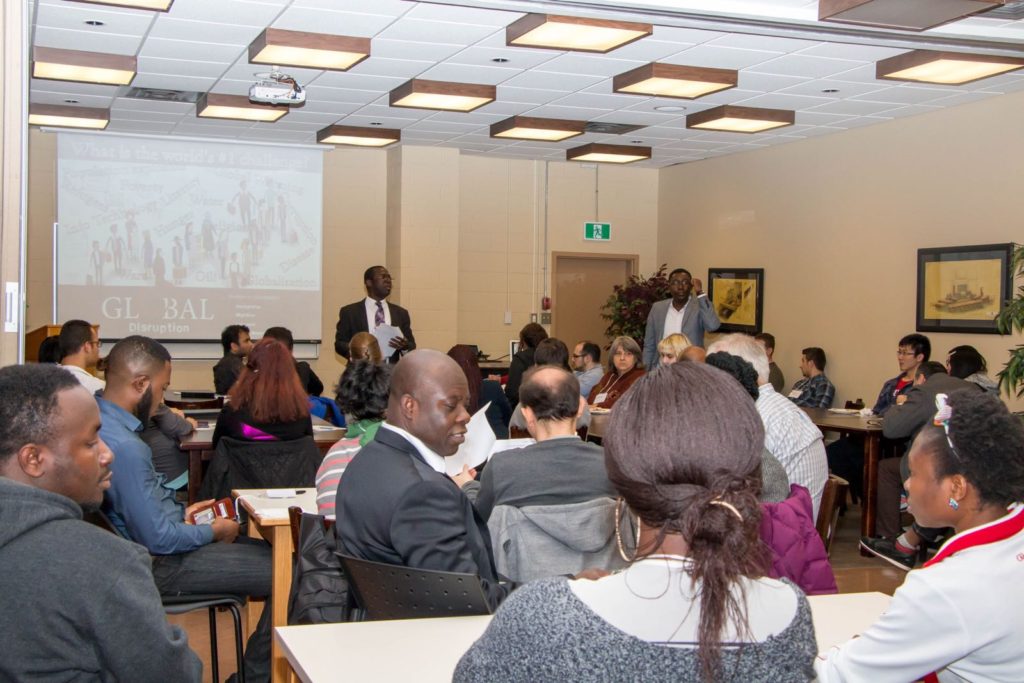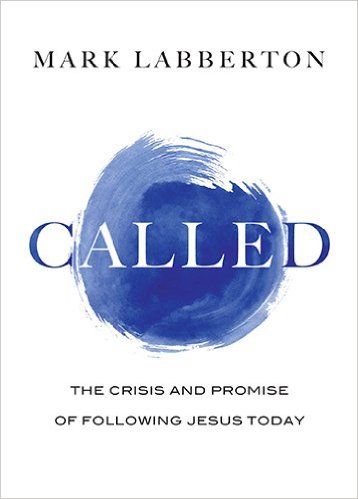I DON’T CARE HOW GOOD YOU ARE (#2)~If you’re not a ‘walkie-talkie’
When “what people say, what people do, and what they say they do are entirely different things” (Margaret Mead) we’re in real trouble. On this Father’s Day, I want to honour the one person, of all the leaders I know in this world, who I can vouch for as walks his talk: my own father.
WHO SAID WHAT?
In my head I was debating whether or not to continue this “I Don’t Care How Good You Are” series on character, ethics, morality and integrity when I chanced upon an quote from the newly-launched book of a dear family friend (actually my Dad’s Best Man nearly 40 years ago!): “What a person truly believes isn’t what they think or say, it’s what they do” —Queenie in Lark Rise to Candleford. That was it; that was my confirmation to do this piece. So let’s roll with another in this character series. But this one is very special because it is dedicated to my own biological father.
In many places and pieces of literature, even in Scripture, the life we lead is often referred to as our “walk.” Let’s examine what it means when our talk (what we say we believe in, who say we are or what say we do) doesn’t match our walk.
WHY DAD?
If there ever was a man of integrity I could vouch for it is my father: Reindorf Kofi Baah Perbi. In fact, even way back in the 1980s during his days as Chief Accountant at the then Social Security Bank (now SG-SSB), when his signature was forged and monies stolen it was his integrity that saved him. Everyone vouched for him: “Chief would never do such a thing,” the convincingly told the authorities.
Those were the heady days of revolution and military rule in Ghana so he had even received a pre-judicial slap or two already when he was picked up by soldiers and sent to Gonja Barracks. After several weeks of tribunal hearings (and I remember us going to fetch him from tribunal hearings after we had been picked up from Ridge Church School), eventually, the perpetrators were found, tried and shot via firing squad. It was no joke. One of them, I believe, is still on the run—he must be still running now or dead from running.
When Dad retired as Ghana’s Deputy Senior Partner of KPMG (one of the ‘big four’ accounting firms in the world) in April 2015, it was humbling to hear how many of his accounting, management consulting, and audit colleagues honoured him for this one thing: integrity. I sat at those banquets (yes, there was more than one! Lol!) soliloquizing, “I want that. When all is said and done, that’s the kind of man I want to be!”
LAYING IT DOWN
Contrast Dad with Kenneth Lay, who was the CEO of Enron. He played a leading role in the corruption scandal that led to the downfall of the Enron Corporation. Unfortunately, Lay and Enron have become synonymous with corporate abuse and accounting fraud since the scandal broke in 2001.
In an interview with the indefatigable Larry King of CNN, after pleading not guilty to criminal counts having to do with his leadership at Enron, these were Mr. Lay’s words: “I lived my life in a certain way to make sure that I would never violate any law – certainly not criminal laws – and have always maintained that most important to me was my integrity, my character, and my values.”
Something doesn’t add up here because in 2004, Lay was indicted on 11 counts of securities fraud and related charges. He was found guilty on May 25, 2006, of 10 counts against him which meant he could face anything from 20 to 30 years in jail. However, only three-and-a-half months before sentencing, Kenneth Lay died of a heart attack while vacationing.
Same thing with Bernie Madoff who founded a Wall Street firm in 1960 of which he was chairman until his arrest on December 11, 2008. He would soon plead guilty to 11 felonies, having turned his wealth management business into a massive Ponzi scheme with almost $65 billion of fabricated gains. Yet hear his defense attorney, Daniel Horowitz: “…Bernard (Bernie) Madoff is a longstanding leader in the financial services industry. He will fight to get through this unfortunate set of events. He is a man of integrity.” Madoff is currently serving a life term in a federal prison for his kind of integrity.
STRANGE ANIMAL
Did you not just read Mr. Lay saying integrity was most important to him? In my short life, perhaps there is no word I’ve found more misunderstood and misappropriated than the word, “INTEGRITY.”
Integrity comes from the Latin root integritas, which means entire or whole. It’s the word from which we get “integer” in Mathematics. It may help to remember that integers are positive or negative whole numbers. To have integrity, therefore, means you are whole, you are one: your private and public lives are one; your charisma and character jive; what you say and what you do are in sync.
Extending the Math metaphor, a life of no integrity on the other hand is fractionated—instead of integers, we have fractions. That is when the Yaw you see behind the pulpit is different from the Yaw you see at the pub; and different from the Yaw you experienced on vacation in Panama; who is also very different from the Yaw at home… Sadly, not too long ago even a pastor whose public image did not match who he truly is was exposed on CNN.
THE ONLY TIME I BELIEVE IN ATHEISTS
When it comes to integrity, I dare say that many non-religious people, even atheists, have more integrity than many so-called religious people. This is what I mean. If Steve says, “I lie, I deceive, I steal.” Steve has low morality. When Yaw says, “I abhor lying, I don’t deceive, I never steal,” he has high morality.
BUT, if Yaw goes on lying, deceiving and stealing then Yaw is not a person of integrity. He doesn’t walk his talk. However, if Steve goes ahead to lie, deceive and steal, although he has low morality he actually is a person of integrity (albeit in a very twisted way) because he walks his talk. He said he will do these and he does.
The extent to which your walk and talk jive is the extent to which you are a person of integrity.
WANTED: WALKIE-TALKIES
I’m not perfect; none of us is. Many times I haven’t kept my word—including keeping appointments. It isn’t a perfect world either; stuff happens that alter our good intentions. One thing I do, however, is strive to call or email and apologize profusely, letting the person know I had every intention to keep my word but now very sorry I’m unable. The Psalmist David, takes this even a notch further saying a person of integrity is one who keeps his/her word, even when it hurts.
Integrity doesn’t mean you are perfect; but it sure means that when you ‘mess up’ you quickly and truly ‘fess up’. That is what made God call David, albeit an adulterer and a murder, a man of integrity (Psalm 78:72), even “a man after my own heart.”
I have observed with shock how people say things they don’t mean and mean what they don’t say; and say things they have no intention of ever acting on. Time wouldn’t allow me to go into my private disappointments in the lives of public speakers whose private lives don’t measure up to their public statements or images. And they have no qualms about it. The Lays and Madoffs did not just wake up one day and find themselves in court—a little slip, a little lie, and slowly slowly but surely surely down a slippery slope we go.
It doesn’t matter how good you are at what you do (skill, talent, gifting). If consistently what you say does not match what you do (walk), I shan’t hire you. Or if I do by mistake or because I want to give you a chance, you’re already on the firing line—it’s just a matter of time, if nothing changes. The world has billions of smart phones; what we need now is truly smart people. We need more walkie-talkies—people who walk their talk and talk their walk.
Thanks Dad, for showing me the way. Happy Father’s Day!
CONFESSIONS OF THE CALLED (#1): “Honey, I Think we Overdid it”
Of course ‘everyone’ wants to know, “why on earth am I here?” Why else would authors sell a tonne of books on that! But as I discover more about this valid existential question, some of my strong views and approaches to the whole issue of purpose/calling are being challenged and changed. This is a series of reflections and confessions of such.
“MR. KNOWS IT ALL”
Yes, I’m headstrong and very passionate about the things I’ve come to know, understand and believe. Yet my inner circle will also tell you that I’m not afraid to say “I don’t know;” neither am I ashamed to say “I was wrong.”
In fact, long before the term “paradigm shift” became cliché, I remember running seminars for young people, even 15 years ago, and challenging them thus: “if you come into contact with new information which makes you realize that a particular way you’ve been thinking and living has been making you ineffective, SHIFT YOUR PARADIGM!” Up to this day, my wife, Anyele, reminds me that at that moment, I will characteristically jump from one spot of the room to another, to illustrate my point.
Come on, after all, “we live and learn.” Did not some wise Greek philosopher once say something like “I know one thing; that I know nothing”? Even Albert Einstein is quoted as stating, “The more I learn, the more I realise how much I don’t know,” an obvious remix of Aristotle’s “The more you know, the more you know you don’t know.” So congratulations if you know it all 🙂
In the next few weeks, I want to humbly acknowledge a few mistakes and missteps of mine regarding the whole idea of calling or vocation. In a series I’m calling “Confessions of the Called” I will basically share some further enlightenment I’ve received, particularly based on the work of my seminary president, Mark Labberton, in his book Called: the Crises and Promise of Following Jesus Today (2014).
In this book, Mark Labberton attempts to paint two pictures. First, a dull one of the current states of the world and the church and then a brighter picture of the ideal—what could and should be. The first third of the book summarises well “the crises and the promise of following Jesus today” and then for the next three chapters reboots paradigms about where, how and to whom/what we’re called, finally showing the way forward in the last chapters.
Having been a student and teacher of purpose/calling for the last 15 years I seem to think I’ve learnt almost all I need to know about the subject. I was curious to know if Labberton had anything ‘out of this world’ to add to my knowledge and experience. Thus the question I had in mind when I started reading this book proactively was, will I really learn anything totally new about calling than I already do?
BACKGROUND TO CONFESSION
A decade-and-a-half ago, when a bunch of us set out to start the WannaBe Institute, which later metamorphosed into The HuD Group, we were bent on “inspiring and empowering young people to discover their God-given purpose and reach their full potential.” That still remains the core of what we do although the mission has expanded beautifully into God’s grander purpose for leadership and mission in over a dozen countries.
I was personally sick and tired of young people sitting around purposelessly not realising that they were not a mere accident but an intentional creation of a very personal God who had a very specific purpose for their lives. We’ve since taught thousands of people how to find their specific God-given purpose in life, and write personal mission statements, especially by looking through the lens of the manufacturer’s manual (the Bible) and how they’re wired.
NOW, TO CONFESSION #1
I am sad to say that in my overdrive to help many emerging leaders quickly find their specific God-given purposes for their lives—to become “meaningful specifics” rather than merely “wandering generalities”—I inadvertently got blindsided from adequately pointing them to and thoroughly addressing their primary call. I have been too eager to move to “next things” (as Labberton puts it in his book), even putting “next things first” sometimes. I remember saying to my wife, Anyele, a couple of mornings ago, “Honey, I think we’ve overdone it.”
As I read Labberton’s book, it became obvious that my paradigm of calling is exactly the opposite of Labberton’s (and we just might both be coming from two extremes and need a “radical middle” as my Vineyard friends oxymoronically put it). This is how Mark states his perspective of calling: “Beyond these first things, God sometimes has next things” (emphasis mine). “Only sometimes?” I thought in bewilderment.
This is a radical thought for me. I sure do affirm the general purposes of God for our lives, the primary purpose of loving Him and our neighbour, but quickly move on to what I consider the ‘main thing’, which Labberton calls a temptation, finding God’s specific purpose for one’s life assuming everyone has this, always. I am considering writing to the author about my struggle.
Let me tell you why Mark Labberton thinks my specific approach hitherto is dangerous. TO BE CONTINUED…
Will you share your thoughts so far with me?
How to Start the New Year Right
A laser focus on God and goals through a concentrated time of fasting, reflection, purposeful planning and prayer at the start of every year has done wonders for my family, friends and I over the last 10 years. Why change a winning strategy?
WHAT GOT ME GOING
“Are we doing it again in 2017?” is the question (in an email) I woke up to on the dawn of the last day of 2016. “Of course, of course!” is the summary of my response to this dear Chinese-Canadian mentee of mine who has tasted the power of starting the new year right for some years now.
Meanwhile, earlier that week a Quebecois friend visited our home in Montreal to interview me on how I get to set my goals for every year. As I pondered her questions it had occurred to me that it may be a good idea to put some of these thoughts on paper for a wider audience and then that email on December 31 just got me going. So here goes!
NOT WITHOUT GOD
It is true that the end of a matter is even more important than the start but it helps a whole lot how you start also. As a doctor, I know that a child’s early nutrition can even determine their intellectual rigor and physical height (stunting) in latter years. So yes, how one starts matters a whole lot.
For me, starting the year with a God focus is not only the right way—it’s the only way to go. “In the beginning, God…” Those are the very opening words of Scripture in Genesis 1:1. How else would anyone want to start a new year but with the Originator of all things? Over the years I’ve come to call it “the Proto Principle”—in all your getting get God first. So yes, how does one start the year right? Not without God!
NOT WITHOUT GOALS
If you aim at nothing for 2017, guess what? You’ll hit it: nothing! “Therefore I do not run like someone running aimlessly; I do not fight like a boxer beating the air.” (1 Cor. 9:26, NIV) To run with purpose in every step and not just shadowboxing your way through life, you need to set goals.
The way I go about it is to have a framework that enables me to set goals holistically—in every area of life. Otherwise what happens is that only “the squeaky wheel gets the oil.” So I set:
- Spiritual goals—worship, fellowship, discipleship, service, evangelism/mission
- Physical goals—health, wealth, work, others
- Social goals—family, mentors, mates (friends), minnows (mentees)
- Mental goals—knowledge, skills, others
So yes, how does one start the year right? Not without goals!
PATH OF PRAYERFUL PRAXIS
Although this is an amazing framework that helps me not to miss any important area of life how do I determine what exact goal to set in that particular sphere? This is where the interview with my Quebecois friend got really interesting.
First there must be good praxis. Praxis is a big word that simply means deep reflection on your practice for action. According to Wikipedia, “Praxis may be described as a form of critical thinking and comprises the combination of reflection and action. Praxis can be viewed as a progression of cognitive and physical actions:
- Taking the action
- Considering the impacts of the action
- Analysing the results of the action by reflecting upon it
- Altering and revising conceptions and planning following reflection
- Implementing these plans in further actions.”
So I take a good look at how I’ve done life, say regarding my health in 2016. In pondering how I could do things better and my desired outcome regarding my health in 2017 I write down a health goal (diet, exercise, sleep).
And why do this prayerfully? First of all, life is too busy yet too short to go chasing every good goal; I want the God goals. King David had a goal to build a temple for God. Was it not a good spiritual and physical goal? But was it a God goal? No! God had other plans.
There are many good goals that come into my head during my praxis but in order to find the specific one that my Creator and Sustainer has for me this year I want to do my goal-setting prayerfully. It always amuses (yet even scares) me whenever I remember how God referred to the ‘good’ visions of some people in Jeremiah’s day as “delusions of their own minds.” Is this just a good goal or a God goal you are setting for 2017? I don’t want to be deluded!
So “Trust in the LORD with all your heart and lean not on your own understanding; in all your ways submit to him, and he will make your paths straight.” (Proverbs 3:5-6, NIV)
Secondly, setting a God goal is one thing; accomplishing it is another. “Unless the Lord builds a house, the builders labour in vain.” I prayerfully set these goals for God power (ranging from anything from divine opportunities through intellectual rigour to physical strength) to enable me accomplish them to His glory and my joy.
For example, the circumstances surrounding the accomplishment of my family’s goal to purchase our first two properties—one in Ghana and the other in Canada—were nothing short of miraculous. Regarding the former, the landlord had literally laughed and sworn he was never going to sell that property when we first made the unsolicited offer. Later he would come literally ‘chasing’ us to buy it. Regarding the latter, God had kept it for two years on the market for us. All those who had previously made offers did not get the financing. Until we came along with God power…
So why bring God into this ‘purely human thing’ of goal setting for the year? For God goals and God power!
WAY TO GO
Thus since January 2007, for some of the reasons above (and more), an annual concentrated time comprising a 21-day fast with purposeful prayer and planning (P3) every January has wrought wonders for my family, friends and I. Now, it’s not even an option.
Why do we fast? That will be the subject of another entirely different blog but let me just put it this way, using an vehicular metaphor. Most cars on our roads are two-wheel drives (either front or back axles) and do a great job of taking us from point A to point B. When stuck in mud or snow however, you probably have seen those same cars spinning their two front or back wheels frantitcally yet making no progress. Those cars that are four-wheel drives (4×4), however, are able to engage an auxiliary gear which then gets all four wheels turning and off and away they go! Prayer is powerful in and of itself (like a two-wheel drive); adding fasting is like engaging the auxiliary gear in a four-wheel drive.
You may join my family, friends, co-workers and I, especially from The HuD Group and ISMC, from 5 to 6pm ET EVERYDAY from January 2nd to 22nd to pray together on the phone line +1-647-848-3378 with access code 1234577788#. In various countries there are organized groups congregating to pray at the equivalent local time as well.
Here is the schedule. The recommended fast is a 6am to 6pm full-day fast from food (or anything with calories) but not water.
“So we fasted and petitioned our God about this, and he answered our prayer.” (Ezra 8:23)
Yes, how does one start the year right? Not without God goals and God power!
HAPPY NEW YEAR!





